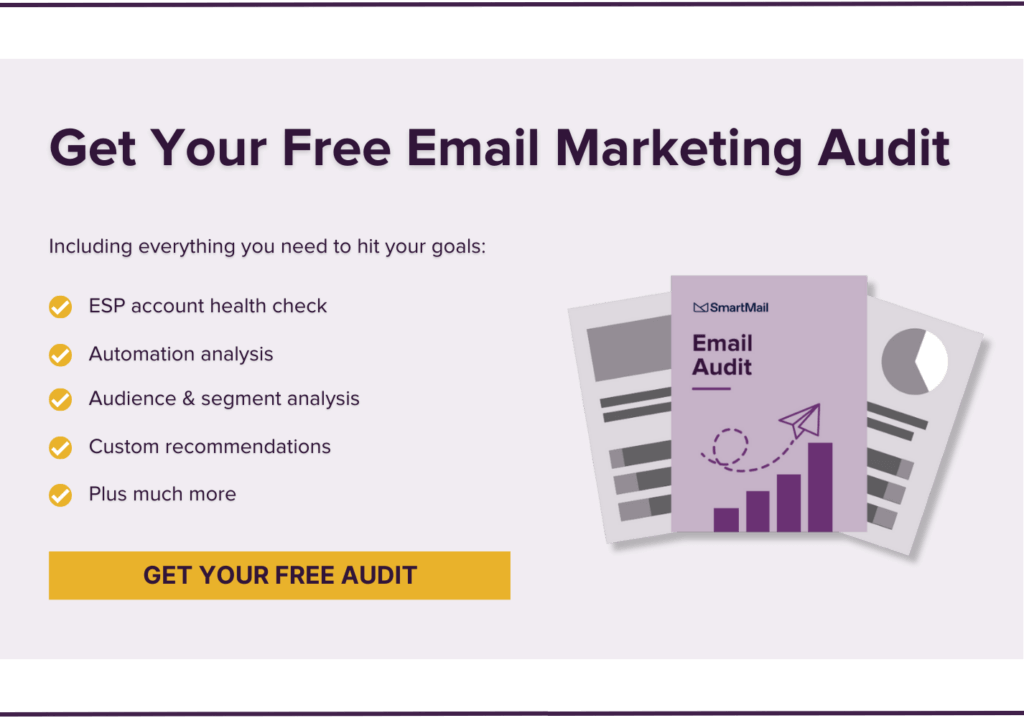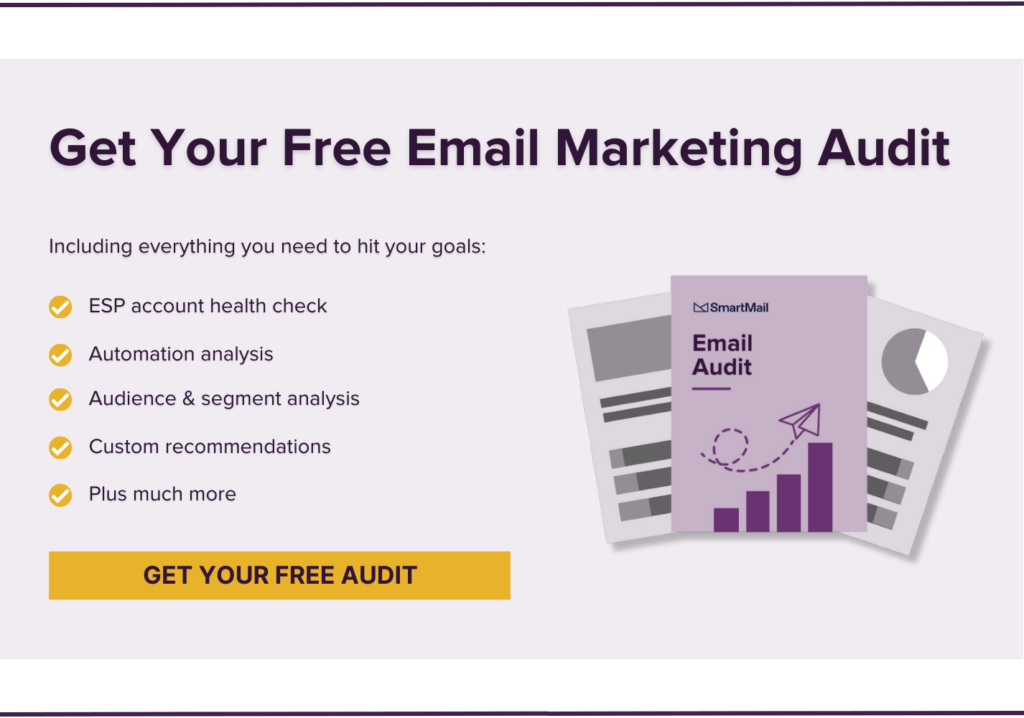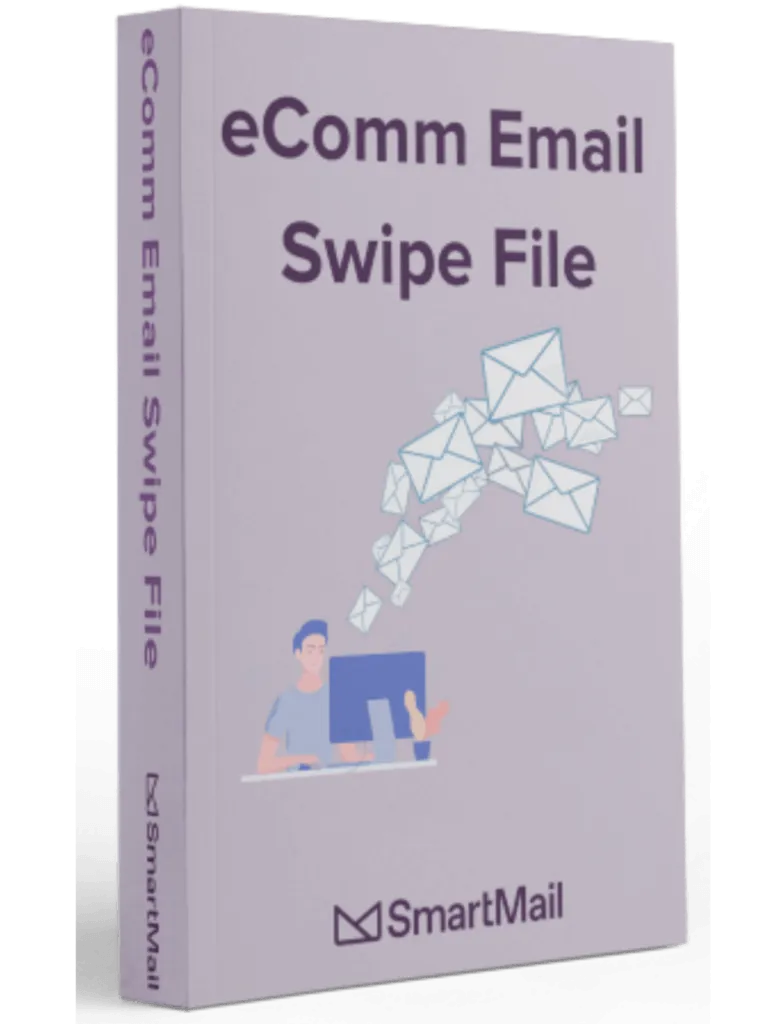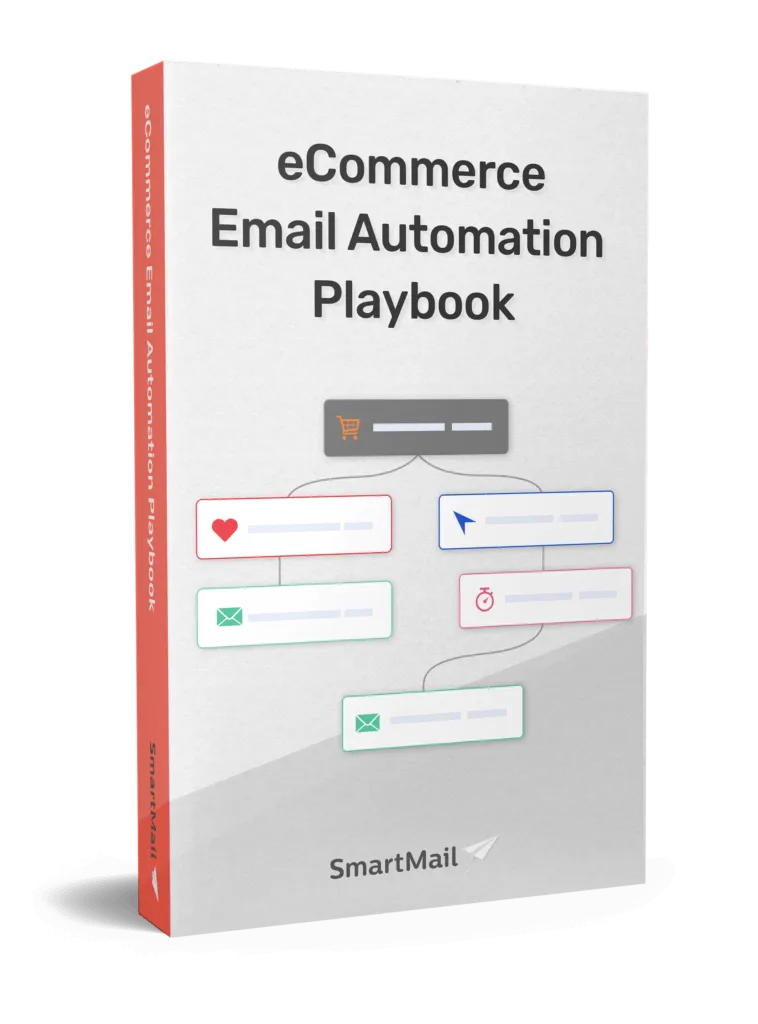How can eCommerce companies compete with Amazon?
You can’t beat Amazon on product variety, time-to-ship, or delivery options. But, you can beat them on customer experience.
That’s exactly what KB Authority has done with the help of triggered email campaigns that put personalized product recommendations in their customer’s email inboxes. Getting the right message to customers is a major way that KB Authority does what they do best, which is helping brand-conscious shoppers score up to 70% discounts on homewares they love.
KB Authority has a thick playbook of email campaigns triggered by customer behaviors, including emails personalized based on product browsing history or an abandoned shopping cart. These automated email campaigns have unlocked a 643% increase in KB Authority’s customer conversions, and 13%b higher website sales. “The results really speak for themselves,” says CEO Greg S.
Winning in customer experience can help small and mid-sized eCommerce companies beat Amazon. Your journey to the top starts with the right eCommerce marketing automation platform (MAP) to scale customer experience. Here are seven of the best.
The Rise of eCommerce Marketing Automation
The rise of eCommerce marketing automation marks a significant shift in how businesses approach online sales and customer engagement. This trend reflects the increasing reliance on technology to streamline marketing processes, deliver personalised customer experiences, and drive sales growth. By automating repetitive tasks and leveraging data analytics, eCommerce businesses are able to focus more on strategic decision-making and customer service, leading to enhanced operational efficiency and customer satisfaction.
The 7 Top eCommerce Marketing Automation Platforms in 2024
- Klaviyo
- Bronto
- MailerLite
- HubSpot
- Omnisend
- ActiveCampaign
- Drip
First of all, there is no such thing as the “best” eCommerce marketing automation platform in 2024. The right solution for a merchant depends on their goals, size, and budget. Why should you listen to us? Well, we’re unbiased and have exactly zero incentive to make you pick any solution other than what’s actually the best for your online store. After all, we’re not in the business of marketing automation software.
At SmartMail, we specialize in “done for you” eCommerce email marketing. We’ve helped dozens of eCommerce firms create personalized eCommerce email marketing campaigns for the entire customer lifecycle. Our results speak for themselves—the SmartMail team has sent 530 billion emails, which generated 187 million in client revenue.
SmartMail’s primary mission is eCommerce email strategy and execution, which we achieve using our own proprietary platform for email marketing. We’re not promoting or reselling someone else’s solution. Instead, we’re neutral experts on the idea of eCommerce MAP, and our team has direct experience with all major solutions.
How to Choose the Right eCommerce Marketing Automation Tool
Starting a search for eCommerce automation software can be overwhelming. There are hundreds of solutions to pick from. It’s impossible to review all of them, so we’re focusing on seven software vendors which are frequently cited among the best MAP for eCommerce in 2020.
Here’s how these seven solutions stack up based on price and features.
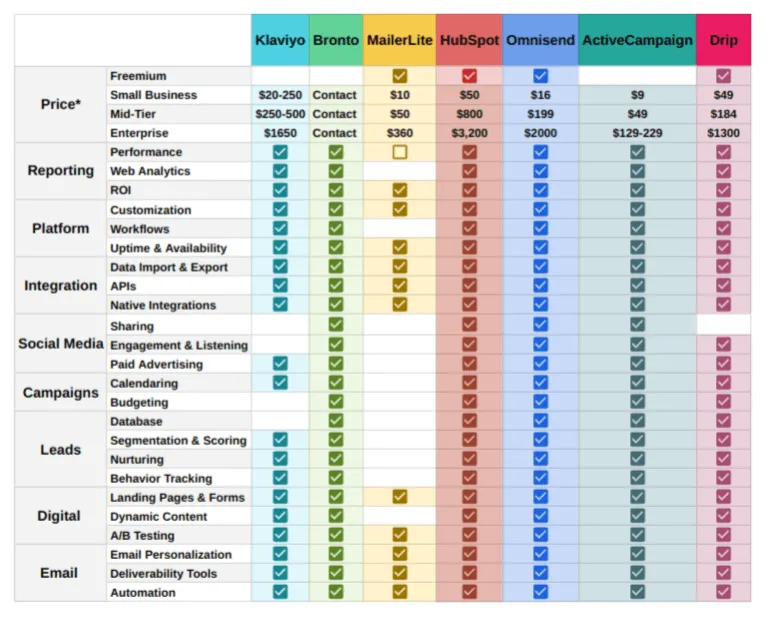
Features and pricing data via neutral customer reviews website G2 Crowd.
Price and features are definitely a big part of the story, but they’re not everything you need to know. Each of these seven eCommerce MAP vendors has different strengths, weaknesses, and target customers. Read on to learn more.
Enjoying this content?
Join the other 5,473 eCommerce business owners.
1. Klaviyo
Features
Klaviyo offers the comprehensive features you should expect in an eCommerce marketing automation platform. The vendor has a goal of helping organizations “eliminate technology sprawl,” or simplify the eCommerce marketing stack. Klaviyo offers 24 out of 28 of the most important MAP capabilities for eCommerce. The only major drawbacks include Klaviyo’s limited feature sets for social media marketing, budgeting, and lead database storage.
There are a number of direct integrations to expand Klaviyo’s capabilities, including out-of-the-box interoperability with many common eCommerce solutions. Direct integrations include, but aren’t limited to, Shopify, Big Commerce, Commerce Cloud, Magento, and WooCommerce.
Target Customers
Klaviyo is primarily targeted toward eCommerce companies of all sizes, offering seamless integration with Magento, Shopify, and WooCommerce. This MAP also has some non-eCommerce adopters in B2B and B2C verticals. Notable customers include Nuun, BearBrand, and SoloStove.
Pricing
Klaviyo has a unique, hyper-flexible approach to pricing, which is based on a customer’s total email contacts. The platform is free up to 250 contacts, although Klaviyo branding and double opt-in is required. For all paid tiers, the price is adjustable in $10 increments based on total subscribers.
The following chart displays three prices customers could expect to pay with this platform, according to the latest pricing data from the vendor website.
Customer Ratings
Klaviyo has an average of 4.6 out of 5 stars on G2Crowd, with 429 customer reviews. The platform has received ratings of 8.5/10 or better for ease of use, support, and ease of setup.
One customer writes, “a reason to love Klaviyo is their ability to segment your audience. …based on their activity and interaction with your website.”
Is Klaviyo right for you?
While Klaviyo’s built-in data science capabilities are simple enough for use by the average marketer, you need some resources for setup and administration to succeed with this MAP.
RELATED READING: Klaviyo vs. Mailchimp
2. Bronto
The Bronto Marketing Platform is a part of the Oracle Netsuite for enterprises. The “seamless” integration between Bronto and the rest of the Oracle Netsuite has popularized this MAP among major retailers and big-name designers. While Bronto is ultimately an email marketing platform, it’s a sophisticated enterprise solution that is designed for multi-channel customer engagement at scale.
Features
Bronto is a highly-robust solution, with a broad range of features and capabilities designed to help marketers achieve better digital personalization, automation, and analytical insight. Bronto has all of the major requirements for comprehensive eCommerce MAP, as well as some relatively unique features which aren’t available with lightweight eCommerce MAP options. Sophisticated capabilities include the ability to create highly-personalized website pop-up ads for your customers.
Bronto is built to operate in tandem with other Oracle Netsuite solutions. In addition, Bronto offers native integration with eCommerce platforms and MarTech, such as Magento, Salesforce, Monsoon, and Reaction Commerce.
Target Customers
Bronto’s customers include many well-known retailers and brands in verticals, such as apparel, home goods, and sporting goods. Customers include Brilliant Earth jewelers, Sportsman’s Warehouse, and Everlast athletic apparel.
Pricing
Bronto pricing is not publicly available. Prospective customers are directed to contact the vendor with pricing questions.
Customer Ratings
235 reviewers have provided an average of 3.9 out of 5 stars for Bronto. The software has an average of 7.8/10 stars for ease of use and 7.4/10 for ease of setup.
One email marketing manager writes, “Bronto is sophisticated enough to offer all the functionality we desire, including cart abandons, personalized recommendations, and a plethora of automation.”
Is Bronto right for you?
Bronto may be the right MAP for your eCommerce company if you’re an enterprise brand who is already using products from Oracle Netsuite, such as SuiteCommerce for omni-channel retail, Oracle Enterprise Resources Planning (ERP) or Analytics.
Also, Bronto is a strong contender to solve complex, multi-channel use cases at major brands, such as implementing email marketing campaigns to draw online shoppers into brick-and-mortar store locations.
3. MailerLite
Features
Mailerlite’s specialty is user-friendly features for DIY email campaigns, such as a drag-and-drop email editor. In addition to a robust suite of tools for email execution, MailerLite offers some traditional MAP features. These include capabilities to create custom landing pages and personalized website pop-ups.
MailerLite is not specifically designed for eCommerce companies. However, some features for product imports and sales tracking are targeted toward eCommerce. Native integrations include Shopify, WooCommerce, SendOwl, and Create Form.
Target Customers
MailerLite’s current customer base includes organizations of all sizes, from a wide variety of verticals. Their clients include BMW, GoPro, and TypeForm.
Pricing
MailerLite offers transparent, interactive tools to project pricing. Monthly costs are based exclusively on the number of email contacts. The service is billed either monthly and annually, with a 30% discount offered to annual subscribers.

Customer Ratings
240 customers have given Mailerlite an average of 4.6 out of 5 stars on G2Crowd. The software has 9/10 or higher marks for support and ease-of-use.
One small business owner writes, “MailerLite excels with its comprehensive and easy to use automation features and its friendly support pages, often with videos that describe exactly what I need to know.”
Is Bronto right for you?
MailerLite’s transparent pricing and ease-of-use can appeal to startups and small teams who need an eCommerce email platform. While MailerLite is certainly not the most comprehensive MAP for eCommerce, it’s a strong option for brands who need to upgrade to a basic email sending solution.
4. HubSpot
HubSpot is a self-described “all in one growth platform,” or a highly comprehensive marketing software for organizations of all sizes. Competitors include Marketo, Pardot, and the Oracle Marketing Cloud. While HubSpot is not necessarily a specialized eCommerce MAP platform, it offers strong capabilities to comprehensively market your eCommerce store and perform closed-loop marketing attribution.
Features
HubSpot is the single most comprehensive MAP included in this comparison. The solution is particularly unique because it can include full content management system (CMS) capabilities for a website. Access to HubSpot’s marketing automation features is covered by the subscription. However, you can pay for access to sophisticated features for customized reporting, paid advertising, or consulting.
HubSpot offers a native integration with Shopify and a unique concept called “eComm bridge,” a set of APIs targeted to simplify the process of integrating HubSpot with non-Shopify stores on other platforms.
Target Customers
HubSpot’s current eCommerce customers include Sisu Mouthguards, Havalon Knives, and GiftBasketsOverseas. The ease-of-use and comprehensive features of this platform make it a strong option for Shopify-based eCommerce startups or SMB targeting fast growth.
Pricing
HubSpot’s pricing includes several tiers that are based on contacts and features. The vendor also offers a robust freemium version for startups. The pricing chart below reflects monthly pricing for the HubSpot Marketing Hub, with the potential to upgrade contacts for an additional $20 per month for each additional 1,000 contacts. Special pricing tiers are available for some startups.

Customer Ratings
HubSpot has an average of 4.3 out of 5 stars on G2Crowd, with over 5,200 customer ratings. The platform has an average of 8.5/10 stars or better for customer support and ease-of-use.
One customer writes, “Through Hubspot, a developer can easily develop an e-commerce website. This saves the time and cost of production which means this is so reliable and effective for making eCommerce websites.”
Is HubSpot right for you?
HubSpot may be the best eCommerce MAP for your organization if you’re using Shopify and want to consolidate your MarTech stack. It may also be the best option if you’re a fast-growing brand with a desire to consolidate your marketing strategy into a single solution.
5. Omnisend
Omnisend is an all-in-one marketing automation platform for eCommerce. The solution is designed for “high-growth” brands that need greater sophistication than what is provided by major email sending platforms. Omnisend provides a user-friendly launchpad for eCommerce brands to create multi-channel customer campaigns that span email, social media, and mobile channels.
Features
Omnisend offers all of the core features for eCommerce MAP capabilities. Marketers have the tools on hand to segment audience members, personalize communications, and create multi-channel, automated workflows.
Built-in integration options include several major eCommerce platforms, including Shopify, Magento, BigCommerce, WooCommerce, and PrestaShop.
Target Customers
Omnisend is clear that their target customer is “small and mid-sized eCommerce brands” who are targeting fast growth.
Pricing
There are three tiers of pricing available with Omnisend, all of which offer unlimited contacts. The MAP’s pricing levels are primarily based on features.
For example, subscribing to “Pro” provides marketers with access to features to create automated marketing campaigns on social media and WhatsApp. Enterprise unlocks advanced workflow customization and an account manager.

Pricing listed above reflects the cost of Omnisend when it is billed monthly. Subscribers can receive a 22% discount if they choose an annual subscription, bringing the price of Pro down to $160 monthly.
Customer Ratings
289 customers have reviewed Omnisend on G2Crowd with an average overall rating of 4.6 out of 5 stars. The software has 9/10 stars or better for ease-of-use, ease-of-setup, and support quality.
One customer writes, “I like how Omnisend really walks you through how to create all of the automations and workflows. [It] also gives you suggestions of workflows that would be helpful specifically for your business.”
Is Omnisend right for you?
This MAP could be the best solution if you’re a small or mid-sized eCommerce merchant who’s outgrown the capabilities of many basic email sending platforms. It can be a viable path for small teams or startups to start creating personalized, omnichannel campaigns.
6. ActiveCampaign
ActiveCampaign is a small business marketing platform that offers a pathway for startups and SMB to adopt marketing automation capabilities and CRM tools. This comprehensive solution is designed to provide “all the tools you need” to grow customer communications and outreach throughout the entire customer lifecycle.
Features
ActiveCampaign offers all of the categories of features included in comprehensive eCommerce MAP platforms. Additional features include tools for sales, customer relationship management (CRM), and messenger marketing. Enterprise customers can unlock sophisticated machine learning-based features for predictive email outreach.
There are more than 250 native integrations included with ActiveCampaign subscription. eCommerce integrations include WooCommerce, BigCommerce, Shopify, and Shopp. In addition, there are integrations with less-common eCommerce solutions such as MindBody, LandingCube, and Gumroad.
Target Customers
ActiveCampaign makes no secret of the fact that their target customer is “companies that are anything but small.” While the solution is not specifically designed for eCommerce brands, it offers a number of features and integrations for online merchants.
Pricing
ActiveCampaign pricing is based on the number of internal users, contacts, and features. Several possible pricing packages are detailed below, based on the vendor’s latest data for the monthly costs of annual subscriptions.
Professional pricing offers access to predictive sending campaign capabilities, while Enterprise gives brands a dedicated account representative, custom reporting, and onboarding support.

ActiveCampaign offers interactive pricing tools to understand your probable costs. You can anticipate a 30% discount or greater for annual subscriptions versus monthly billing. In addition, your monthly costs are likely to increase based on subscribers. For example, it would be an additional $100 per month to level up a subscription from 500 contacts to 5,000 subscribers.
Customer Ratings
ActiveCampaign has an average of 4.6 out of 5 stars, based on over 1,900 customer reviews on G2Crowd. It has 8.5/10 stars or better for ease-of-use, support, and setup.
One small business eCommerce customer writes, “ActiveCampaign has everything you need in a marketing automation solution, at a price point which allows you to start small.”
Is ActiveCampaign right for you?
ActiveCampaign could be the right solution for you if you want highly-scalable pricing and a comprehensive MAP that can grow with your eCommerce brand. This solution is unique due to the breadth of its adoption and longevity—it has over 80,000 customers and has been around since 2003. This means it could be an especially viable choice if one of your marketing team members has prior experience using ActiveCampaign. It’s also something to consider if you need native integration with niche eCommerce tools, such as LandingCube for Amazon sellers.
7. Drip
Drip is a self-described “eCRM,” which is their own acronym for eCommerce customer relationship management solution. It’s a marketing automation platform targeted specifically toward eCommerce customers who want all-in-one customer lifecycle management. Drip is designed to provide a richer customer outreach via highly-personalized segmentation and automation.
Features
Drip offers features designed to help eCommerce brands “recognize, remember, and tailor” online experiences to customers based on behavioral data. This MAP includes strong features for customer personalization, multi-channel customer communications, and analytics. It has nearly all of the basic MAP features for comprehensive marketing management, with the exception of built-in tools for social media marketing.
Native integrations include numerous eCommerce solutions such as Shopify, WooCommerce, Thrivecart, 1ShoppingCart, SamCart, and others.
Target Customers
Drip targets eCommerce brands of all sizes and industries. Current customers include Live Nation, Bite Squad, and Trivago.
Pricing
Drip’s pricing is highly-flexible and based solely on a customer’s total contacts. You gain access to all of Drip’s features at any level of pricing, and can project your costs with the interactive pricing tool on the vendor website.
Drip’s pricing includes many possible cost tiers. However, three possible pricing packages are listed below. Pricing is available upon direct request for prospective eCommerce customers with 140,000 or more subscribers.

Subscriptions are billed monthly. While there isn’t a freemium version available to startups, customers of all sizes can access a free, two-week trial to the software.
Customer Ratings
Drip has an average of 4.4 out of 5 stars, based on over 230 customer reviews. It has an average of 8.8/10 stars for customer support quality.
One customer writes, “Anyone can use Drip. You don’t have to have huge marketing or tech teams to succeed with Drip. The application is easy to learn.”
DIY or DFY?
Most eCommerce companies fail at email marketing because they think MAP is a magical solution. They think solutions like Klaviyo or Drip are all they need to drive sales. This is a mistake. The single best thing you can do for your organization is to have reasonable expectations about marketing automation software.
An eCommerce marketing automation platform is a tool—Nothing more, and nothing less. Dedicating a few hours each month to using MAP isn’t going to magically fix your conversions and cart abandonment issues. Instead, selecting the right MAP is just one part of an effective eCommerce marketing strategy.
Picking the best MAP for your eCommerce company is important. However, it’s also essential to think about what’s next, including all of the moving pieces that go into a successful marketing campaign:
- Template design
- Personalization
- Automation
- Segmentation
- Deliverability
- Copywriting
- A/B testing
If you nail email marketing, you have the potential to generate at least 40% of your eCommerce revenue with marketing automation.
The most effective eCommerce brands have an email marketing playbook to guide successful email design, timing, automation, and messaging. Your playbook should cover campaigns for category browsers, first-time purchases, and product cross-sells, among many others.
If you want to DIY your own email marketing strategy, select the right MAP, and borrow SmartMail’s Email Marketing Playbook. This free guide details exactly how we’ve generated 187 billion in revenue for our eCommerce clients.
However, you don’t have to DIY. Our team specializes in delivering high-converting trigger-based email campaigns, all done for you (DFY). We can drive results faster and better (17x ROI in the first month), giving you the time and profits to focus on other parts of your eCommerce business.
Learn more about our service here.

